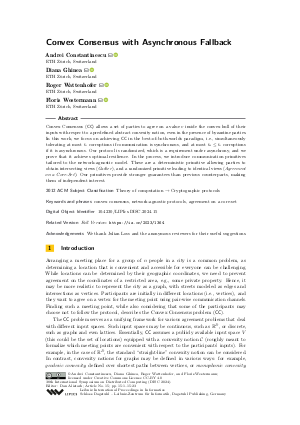LIPIcs.DISC.2024.15.pdf
- Filesize: 0.97 MB
- 23 pages

 Creative Commons Attribution 4.0 International license
Creative Commons Attribution 4.0 International license



Feedback for Dagstuhl Publishing